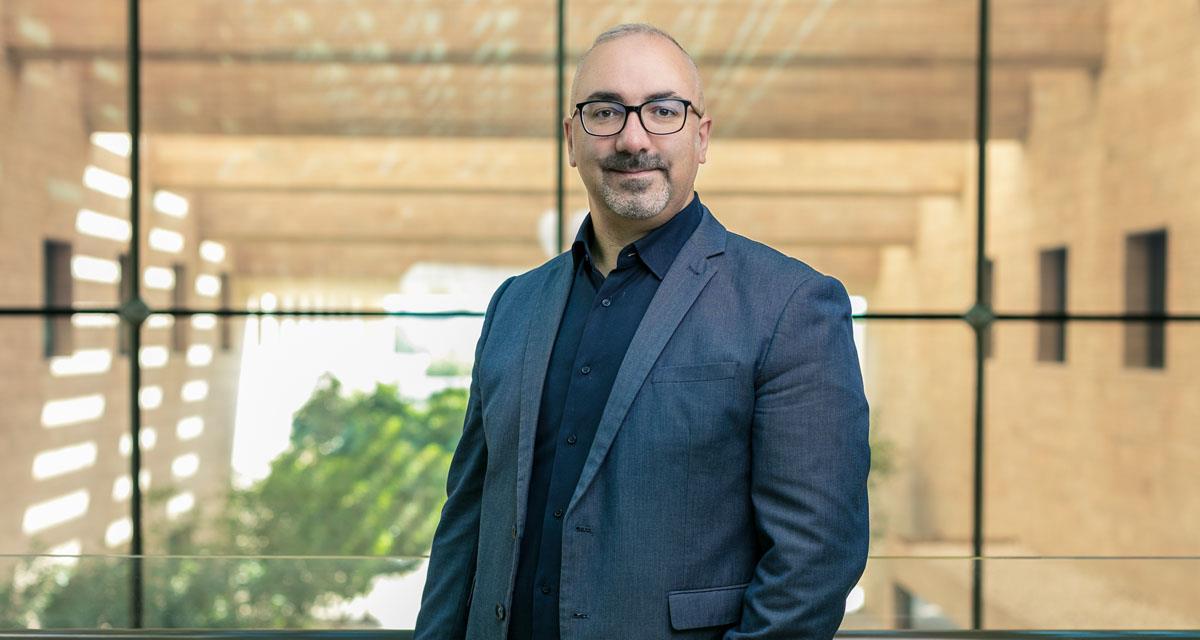
Qatar Strengthens AI Frameworks With Focus On Ethics, Innovation
Doha, Qatar: As artificial intelligence (AI) continues to redefine industries and societies worldwide, Qatar is positioning itself at the forefront of responsible AI adoption through robust governance, education, and innovation initiatives, according to an academic expert.
Area Head and Teaching Professor of Information Systems at Carnegie Mellon University in Qatar (CMU-Q), Dr. Chadi Aoun in an interview with The Peninsula commended Qatar's proactive stance in addressing the ethical implications of AI, emphasising that the country's efforts are closely aligned with its national vision.
“Qatar has developed a number of governance frameworks and guidelines for AI adoption and use,” he said.“These are guided by Qatar's long-term national vision and economic agenda, aiming at accelerating digital transformation, AI capacity building, and the development of responsible AI professionals.”
He said the principles guiding ethical AI development were introduced by the Ministry of Communications and Information Technology, focusing on a“do no harm” approach with a human-centred wellbeing perspective.
“These principles and guidelines align with international best practice, take an evolutionary perspective with anticipated periodic updates, and aim to inspire innovation,” he added.
On the role of education in fostering responsible AI practices, Dr. Aoun underscored the importance of integrating ethics alongside technical training.
“Many are focusing on cultivating technical skills and know-how, which is indeed a worthwhile goal. However, given the pervasiveness of such systems, the ethical and societal perspectives should also be studied and applied,” he said.
He highlighted that ethical considerations such as privacy, transparency, discrimination, and human agency must be examined throughout the AI system lifecycle, not just upon deployment.
“Educational entities and institutions need to equip students with the means to develop safe and ethical AI systems, which contribute to social responsibility,” he said. At CMU-Q, this philosophy is embedded in the curriculum.“One of our degree offerings is the top-ranked CMU program in Information Systems, which is a multidisciplinary field of study that considers people, process, and technology dimensions,” Dr. Aoun said.
Read Also-
Qatar Rail fosters innovation with Creative Hub
Thousands watch Grand Egyptian Museum opening at Katara
Qatar's green spaces increase tenfold since 2010
“We are currently offering a course titled Generative AI and Governance: Building Responsible Systems, which intertwines technical knowledge of AI systems with ethical frameworks and regulatory considerations.”
CMU-Q has also expanded its academic offerings to prepare students for the AI-driven future.“This year CMU-Q started offering an undergraduate degree in AI,” he said.“Developments are underway in several programs, including AI management, AI governance, and AI emergent technologies in the Information Systems programme.”
Dr. Aoun said AI-related research at CMU-Q is growing rapidly, with faculty and students contributing to projects in entrepreneurship, education, privacy, and climate change.“These are resulting in international scholarly publications, forging new pathways for future research, industry practice, and curricular evolution,” he added.
Discussing global ethical challenges, Dr. Aoun cautioned that AI's benefits come with significant risks.“AI holds the promise of assisting us in resolving persistent complex problems in climate change, medicine, and the economy. Yet, it also poses many risks,” he said.“AI could reflect existing biases inherent in data, disrupt job markets, and, in more advanced forms such as Artificial General Intelligence (AGI) or Artificial Superintelligence (ASI), even pose existential challenges to human safety and societal value.” He emphasised the need for“effective regulations and governance systems to amplify AI advantages while managing its risks.”
On preparing students for an AI-driven workforce, Dr. Aoun highlighted the transformative role of education.“A key role for educational institutions is to guide students in their development towards responsible citizens that can positively contribute to society,” he said. He warned against a passive adoption of AI tools,“A cursory adoption of AI could limit such development and substitute it with building user dependency hindering intellectual growth.”
Instead, he called for a shift in academic practice.“Educational institutions must transcend a 'laissez-faire' approach to AI where students are mere users,” he said.“What is paramount is for students to establish their own critical thinking and know-how then use AI systems to streamline, amplify, and complement, but not substitute their skills and intellectual prowess.”
Dr. Aoun empahsised that adapting curricula, assessments, and teaching practices is essential. Such evolution, he said,“would result in graduates that are empowered to take the reins of an AI-diffused job market.”

Legal Disclaimer:
MENAFN provides the
information “as is” without warranty of any kind. We do not accept
any responsibility or liability for the accuracy, content, images,
videos, licenses, completeness, legality, or reliability of the information
contained in this article. If you have any complaints or copyright
issues related to this article, kindly contact the provider above.


















Comments
No comment